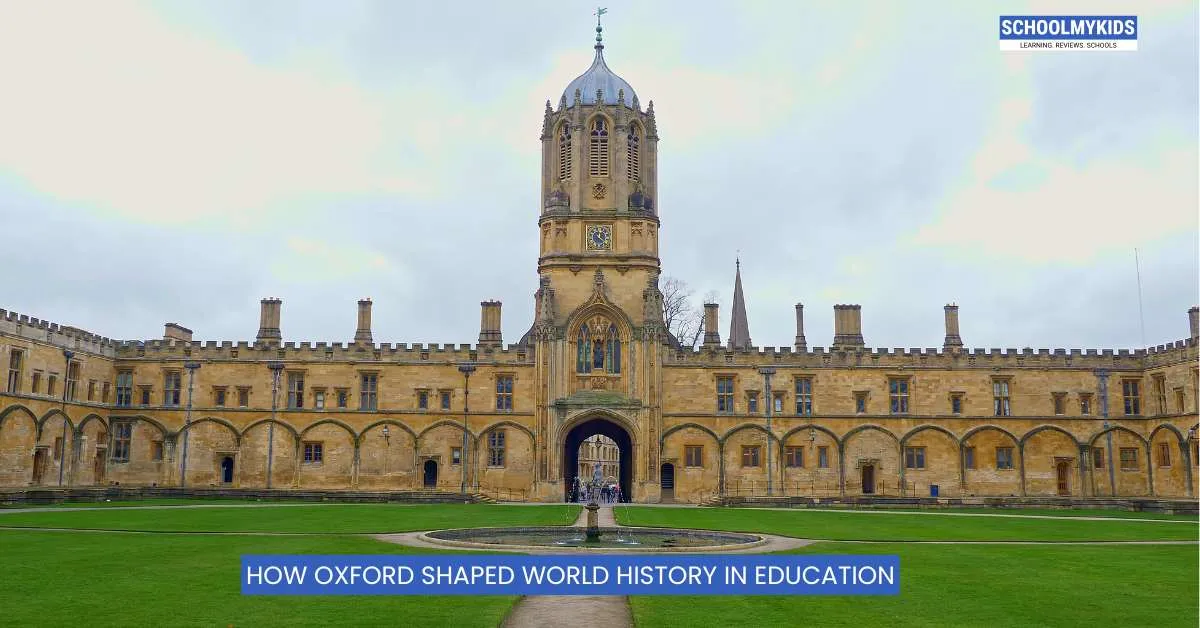The University of Oxford is not just a place—it is a symbol. Founded in the 12th century, Oxford University stands as one of the world’s oldest and most influential educational institutions. Its legacy is deeply interwoven with the history of education itself. From shaping modern scholarship and pedagogy to producing world leaders and intellectual revolutions, Oxford has profoundly influenced global education.
1. A Pioneer in Structured Learning
Oxford’s foundation around 1096 marked a significant turning point in the history of formal education. Before institutions like Oxford, education in Europe was largely confined to monasteries and cathedral schools. Oxford introduced a more organized, secular, and multi-disciplinary model of education. By the 13th century, Oxford had developed a formal curriculum, examination systems, and academic degrees—ideas that became templates for universities worldwide.
2. Birthplace of Academic Disciplines
Oxford helped formalize many of the academic disciplines we recognize today. Philosophy, mathematics, theology, and the natural sciences began to emerge as structured fields of study within the university. For instance:
- Theology and Scholasticism: Scholars like Thomas Aquinas and William of Ockham shaped Christian theology and philosophical reasoning.
- Science: Figures like Robert Grosseteste and Roger Bacon laid the groundwork for empirical methods, influencing the birth of the scientific method.
This structured approach to knowledge division became foundational to the modern education system.
3. The Tutorial System: A Global Gold Standard
One of Oxford’s most enduring educational innovations is the tutorial system. This method involves one-on-one or small-group instruction, emphasizing personalized learning, critical thinking, and analytical discussion. It contrasts sharply with rote-based or lecture-heavy models seen elsewhere. The success of the tutorial system inspired adaptations in elite institutions worldwide, from Harvard to the Indian Institutes of Technology (IITs).
4. Nurturing Global Leaders and Thinkers
Oxford has been the alma mater of an extraordinary number of global influencers:
- 26 British Prime Ministers, including Winston Churchill and Margaret Thatcher
- World leaders such as Bill Clinton (U.S. President), Indira Gandhi (India), and Aung San Suu Kyi (Myanmar)
- Renowned writers and intellectuals like J.R.R. Tolkien, Oscar Wilde, and T.S. Eliot
These individuals have shaped not only political systems but also educational policy, literature, and social reform across continents.
5. Championing Liberal Education and Free Thought
Oxford’s environment has long supported intellectual freedom. During periods of religious and political repression, Oxford scholars defended free inquiry. The rise of liberal education—an approach that emphasizes broad-based learning, ethics, and civic engagement—was nurtured in part by Oxford’s curriculum and values.
Movements such as the Enlightenment and later, post-colonial educational reforms, drew strength from ideas incubated in Oxford’s lecture halls and debates.
6. Oxford’s Colonial Legacy and the Global Spread of Its Model
While Oxford has been a symbol of educational excellence, its history is also entangled with colonial expansion. During the British Empire, the Oxford model of education was exported to colonies. This included:
- English-style universities in India (like Calcutta University)
- Legal and civil service training based on Oxford’s pedagogy
- English literature and moral sciences becoming central to colonial curricula
Even today, many education systems in Commonwealth nations mirror Oxford's structure—semester systems, degree titles like "BA," and hierarchical examination models.
7. Advancing Modern Science and Research
Oxford has been at the heart of scientific breakthroughs. From penicillin research by Howard Florey and Edward Abraham to modern advancements in quantum computing and AI ethics, Oxford combines tradition with innovation. The Rhodes Scholarship, one of the most prestigious international scholarships, also exemplifies its ongoing commitment to cultivating global talent for the public good.
8. Digital Transformation and Global Outreach
In the 21st century, Oxford continues to shape education through digital platforms. Its contributions to massive open online courses (MOOCs), open-access research, and collaborative networks with universities in Africa, Asia, and the Americas reflect its evolving yet consistent role in shaping global education.
Conclusion: Oxford as a Timeless Educational Beacon
Oxford’s influence on global education cannot be overstated. It has set benchmarks in academic integrity, curriculum design, personalized learning, and global leadership. Despite critiques of elitism and its colonial past, Oxford today is a dynamic institution engaging with pressing modern issues—access, equity, technology, and sustainability in education.
More than 900 years later, the world still turns to Oxford—not just for answers, but for questions that shape the future of knowledge itself.








Be the first one to comment on this story.